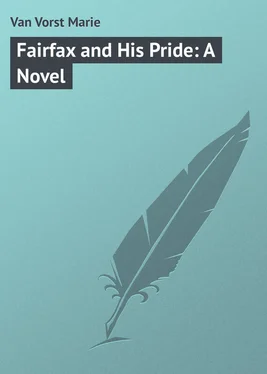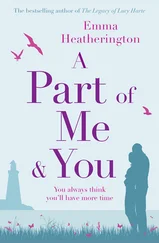Marie Van Vorst - Fairfax and His Pride - A Novel
Здесь есть возможность читать онлайн «Marie Van Vorst - Fairfax and His Pride - A Novel» — ознакомительный отрывок электронной книги совершенно бесплатно, а после прочтения отрывка купить полную версию. В некоторых случаях можно слушать аудио, скачать через торрент в формате fb2 и присутствует краткое содержание. Жанр: foreign_prose, на английском языке. Описание произведения, (предисловие) а так же отзывы посетителей доступны на портале библиотеки ЛибКат.
- Название:Fairfax and His Pride: A Novel
- Автор:
- Жанр:
- Год:неизвестен
- ISBN:нет данных
- Рейтинг книги:3 / 5. Голосов: 1
-
Избранное:Добавить в избранное
- Отзывы:
-
Ваша оценка:
- 60
- 1
- 2
- 3
- 4
- 5
Fairfax and His Pride: A Novel: краткое содержание, описание и аннотация
Предлагаем к чтению аннотацию, описание, краткое содержание или предисловие (зависит от того, что написал сам автор книги «Fairfax and His Pride: A Novel»). Если вы не нашли необходимую информацию о книге — напишите в комментариях, мы постараемся отыскать её.
Fairfax and His Pride: A Novel — читать онлайн ознакомительный отрывок
Ниже представлен текст книги, разбитый по страницам. Система сохранения места последней прочитанной страницы, позволяет с удобством читать онлайн бесплатно книгу «Fairfax and His Pride: A Novel», без необходимости каждый раз заново искать на чём Вы остановились. Поставьте закладку, и сможете в любой момент перейти на страницу, на которой закончили чтение.
Интервал:
Закладка:
"Don't destroy them," his mother said; "I want every one of them. And you must stop being a rowdy and a ruffian, Antony – you are an artist."
He was smoothing between his palms one of the small figures.
"Professor Dufaucon could teach you something – not much, poor old gentleman, but something elementary. To-morrow, after school, you must go to take your first lesson."
Mrs. Fairfax took the boy herself, with the bust of the famous General in her hands, and afterwards sent the bust to Washington, to its subject himself, who was pleased to commend the portrait made of him by the little Southern boy from the clay of the New Orleans levee.
Professor Dufaucon taught him all he knew of art and something of what he knew of other things. In the small hall-room of the poor French drawing-master, Antony talked French, learned the elements of the study of beauty and listened to the sweet strains of the Professor's flute when he played, "J'ai perdu ma tourterelle…"
In everything that he modelled Antony tried to portray his mother's face. As she had been indifferent to him before, so ardently Mrs. Fairfax adored him now. She poured out her tenderness on this crippled boy. He had been known to say to his Mammy that he was glad that he had fallen from the cherry tree because his mother had never kissed him before, and her tears and her love, he thought, were worth the price. She was as selfish with him in her affection as she had been in her indifference. She would not hear of college, and he learned what he could in New Orleans. But the day came when his mistress, art, put in a claim so seductive and so strong that it clouded everything else. Professor Dufaucon died, and in the same year Antony sent a statuette to the New York Academy of Design. It was accepted, and the wine of that praise went to his head.
Mrs. Fairfax, broken as no event in her life had been able to break her, saw Antony leave for the North to seek his fortune and his fame.
She owned her house in Charles Street, and lived on in it, and the little income that she had barely sufficed for her needs. She showed what race and what pride she had when she bade Antony good-bye, standing under the jasmine vine. She never wore any other dress than a loose morning robe of a white or a soft mauve material. Standing there, with a smile of serene beauty, she waved her handkerchief to him as she saw him go limping down the walk from the garden to the street and put of sight. True to her type then, she fainted dead away, and Emmeline and Mammy brought her to.
He thought of things in Miss Whitcomb's front room. There was nothing fairylike about the red-brick dwelling, although at the corner of the New York Avenue these two stories seemed diminutive and out of place. He made with the timid maiden ladies his own timid arrangement. He was so poor and they were so poor that the transaction was timorous – Antony on his part was afraid that they might not take him in, they, on theirs, were terrified lest the lodger would not come in. When at length they left him alone, his first feeling was gratitude for a room of any kind that represented shelter from the Northern cold, but when he had divested himself of his coat, he realized that the little unheated room was as cold as the outside. A meagre bed, a meagre bureau and washstand, two unwelcoming chairs, these few inanimate objects were shut in with Antony, and unattractive as they were, they were appealing in their scant ugliness. Before the window slight white curtains hung, the same colour as the snow without. They hung like little shrouds. Around the windows of his Southern home the vine had laid its beauty, and the furnishings had been comfortable and tasteful. The homelessness of this interior, to the young man who had never passed a night from under his own roof, struck with a chill, and he thought of the sitting-room in the vast house of his kinsmen not a block away. His kinspeople had not even asked him to break bread. Dressed as he was, he lay down exhausted on his bed, and when a knock came and Miss Whitcomb's voice invited him to supper, Fairfax sprang up and answered as out of a dream.
CHAPTER V
His fortune of twenty-five dollars he divided into five equal packets. His weekly bill with the old ladies, to whom his aunt had begged Antony to go in charity , was to be six dollars. There would of course be extras, car-fare and so forth. With economy – it would last. Antony saw everything on the bright side; youth and talent can only imagine that the best will last for ever. Decidedly, before his money gave out he would have found some suitable employment.
With the summons for supper he flung on his coat, plunged downstairs and into the dining-room, and shone upon his hostesses over their tea and preserves. The new boarder chatted and planned and listened, jovial and kindly, his soul's good-fellowship and sweet temper shedding a radiance in the chill little room. Miss Eulalie Whitcomb was in the sixties, and she fell in love with Antony in a motherly way. Miss Mitty was fifteen years her junior, and she fell in love with Antony as a woman might. Fairfax never knew the poignant ache he caused in that heart, virginal only, cold only because of the prolonged winter of her maidenhood.
That night he heard his aunt's praises sung, and listened, going back with a pang to the picture the family group had made before his home-loving eyes.
Such a marvellous woman, Mr. Fairfax (she must call him Antony if he was to live with them. Miss Mitty couldn't. She must. Well, Mr. Antony then), such a brilliant and executive woman. Mrs. Carew had founded the Women's Exchange for the work of indigent ladies, such a dignified, needed charity.
Miss Mitty knew a little old lady who made fifteen hundred dollars in rag dolls alone.
"Dear me," said Fairfax, "couldn't you pass me off for a niece, Miss Whitcomb? I can make clay figures that will beat rag dolls to bits."
Fifteen hundred dollars! He mused on his aunt's charity.
"And another," murmured Miss Eulalie, "another friend of ours made altogether ten thousand dollars in chicken pies."
"Ah," exclaimed the lodger, "that's even easier to believe. And does my uncle Carew make pies or dolls?"
"He is a pillar of the Church," said his hostess gravely, "a very distinguished gentleman, Mr. Antony. He bowed once to one of us in the street. Which of us was it, sister?"
Not Miss Mitty, at any rate, and she was inclined to think that Mr. Carew had made a mistake, whichever way it had been!
Their lodger listened with more interest when they spoke of the children. The little creatures went to school near the Whitcomb house. Gardiner was always ailing. Miss Mitty used to watch them from her window.
"Bella runs like a deer down the block, you never saw such nimble legs, and her skirts are so short! They should come down, Mr. Antony, and her hair is quite like a wild savage's."
Miss Eulalie had called Bella in once to mend a hole in her stocking "really too bad for school."
"She should have gone into the Women's Exchange," suggested her cousin, "and employed some one who was out of orders for chicken pies or dolls!"
That night, under the gas jet and its blue and ghastly light, Fairfax tried to write to his mother, began his letter and left it as he began. "My dearest Mother…" She had told him little of his kinspeople, the sisters had never been friends. Nevertheless, he quite understood that, whatever she might have thought of the eccentricities of his uncle, this welcome to her boy would cut her cruelly. She had fully expected him to be a guest at the Carews.
"My dearest Mother…" He began to draw idly on the page. A spray of jasmine uncurled its leaves beneath his hand. Across his shoulders he felt the coldness of the room where he sat. A few more hurried strokes and Fairfax had indicated on the page before him a child's head – an upturned face. As he rounded the chin, Antony saw that the sketch would be likely to charm him, and he was tired out and cold. He threw down his pen, dragged out his valise, opened it, took out his things and prepared for his first night's rest in the city of his unfriendly kinsmen.
Читать дальшеИнтервал:
Закладка:
Похожие книги на «Fairfax and His Pride: A Novel»
Представляем Вашему вниманию похожие книги на «Fairfax and His Pride: A Novel» списком для выбора. Мы отобрали схожую по названию и смыслу литературу в надежде предоставить читателям больше вариантов отыскать новые, интересные, ещё непрочитанные произведения.
Обсуждение, отзывы о книге «Fairfax and His Pride: A Novel» и просто собственные мнения читателей. Оставьте ваши комментарии, напишите, что Вы думаете о произведении, его смысле или главных героях. Укажите что конкретно понравилось, а что нет, и почему Вы так считаете.











